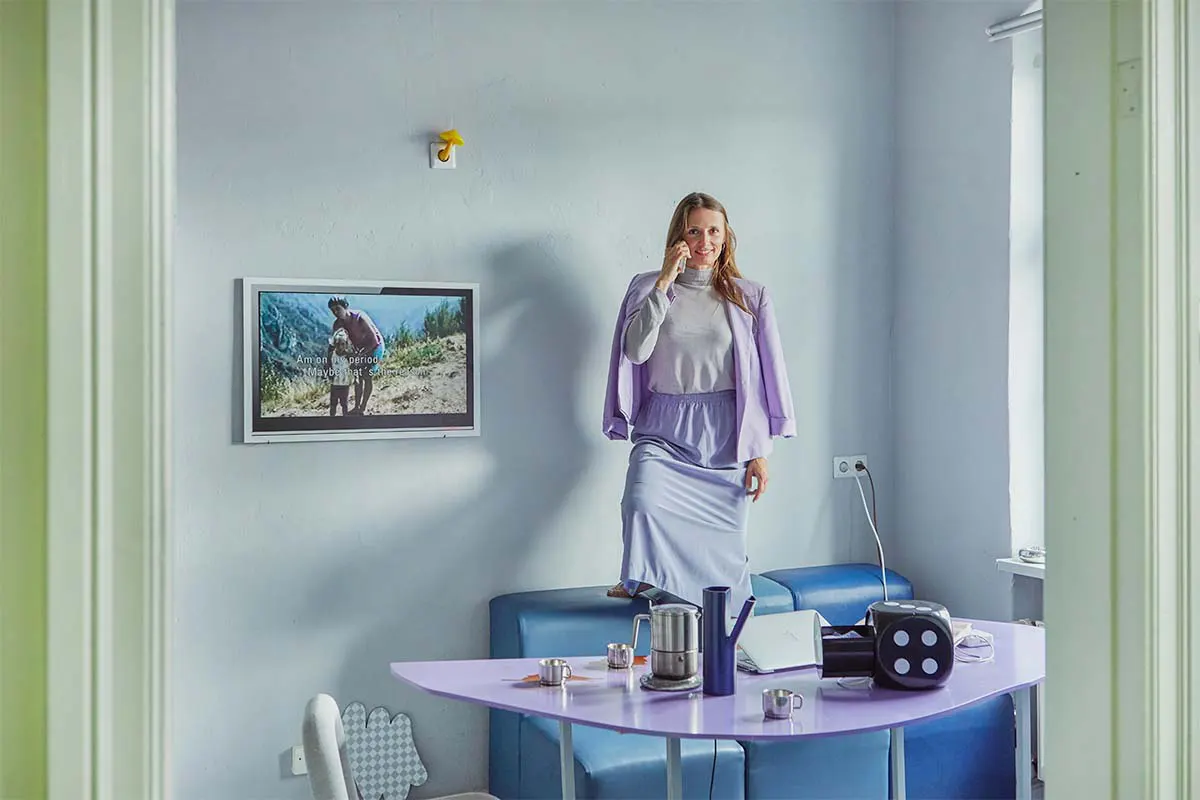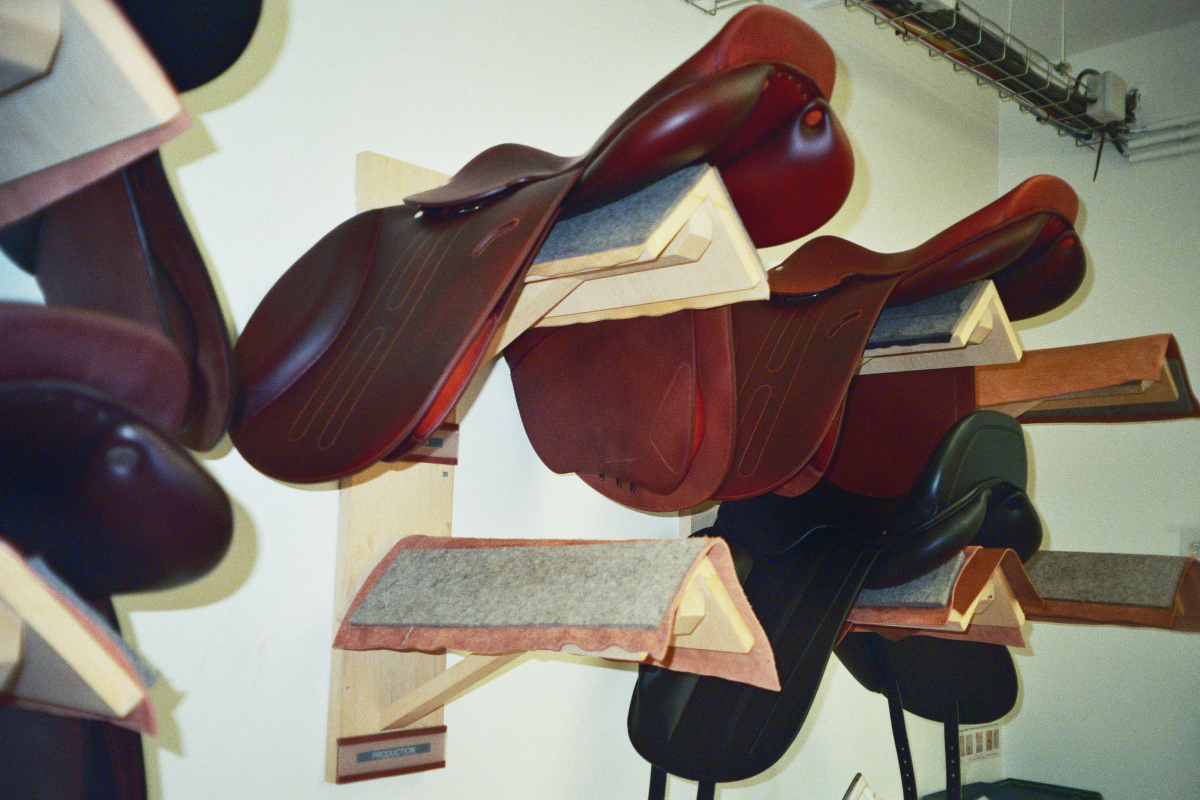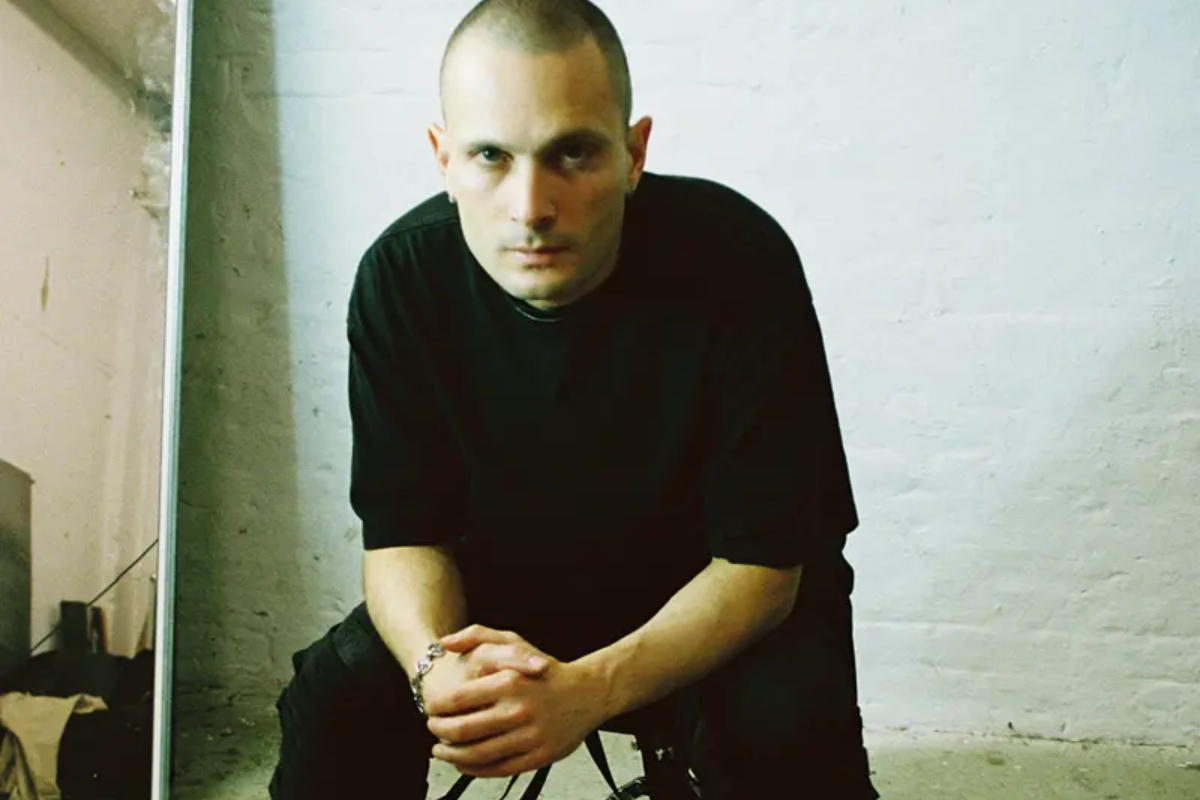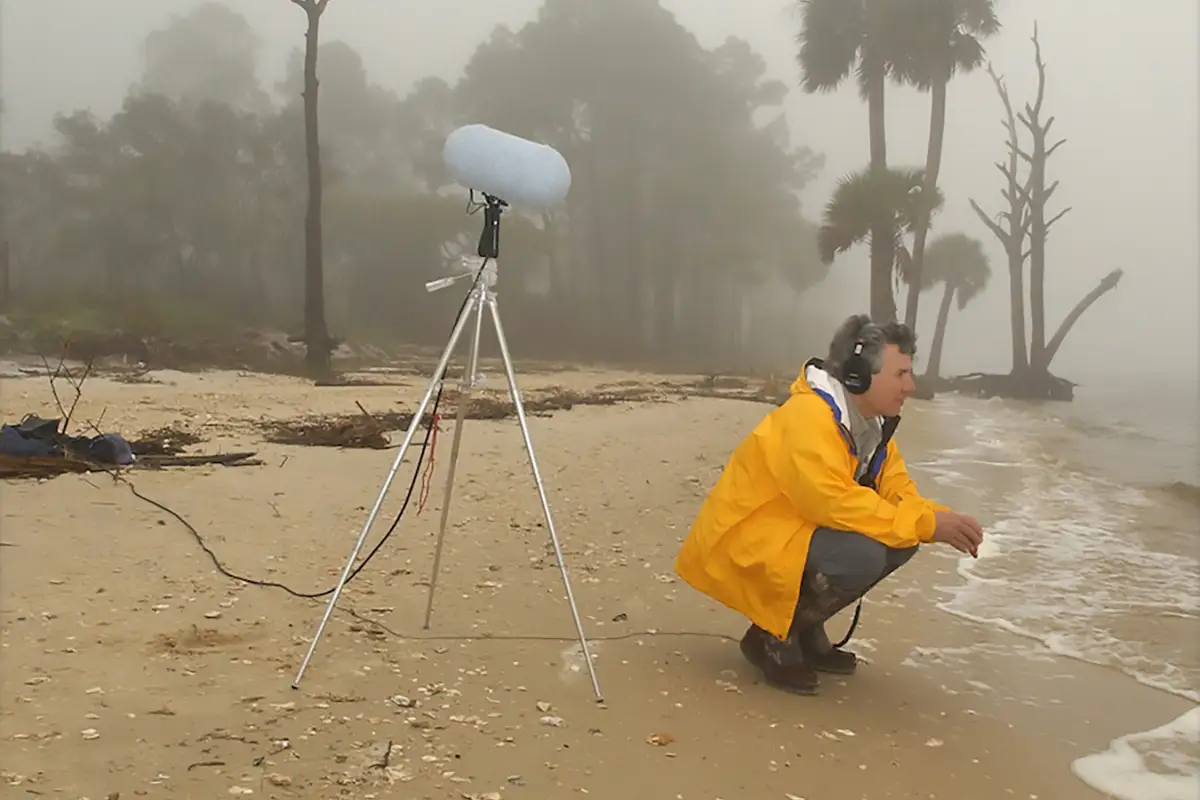Matylda Krzykowski, when transdisciplinarity becomes doing. «Whatever you want to become or do in your life is not just a matter of naming who you want to be, but actually doing it»
New practices and creative projects based on collaboration – Matylda Krzykowski
The first information that you receive when you look at her website, at the top right is a note that says: «Plans, designs, writes and talks about physical and digital space». People call her a designer, curator, artist of design, architecture, and performance.
However, Matylda Krzykowski, with Polish origins and currently based in Basel and Berlin, goes far beyond well-defined intentions, or rather, the non-definition of herself becomes input to constantly measure herself with new practices and creative projects based on collaboration and experimental methods.
Matylda Krzykowski: going beyond definitions is the new input
«My profession? The response is not straightforward. As a child I wanted to be a performer, a dancer, and an artist. I always needed artistic expression». Unpredictability is a constant that presents itself in different forms, opening up possibilities, previously unimaginable streams of thought that become action, and it is good to respond to it with a determined smile, like the trans-disciplinary professional shows while narrating herself.
How many times have we felt that our studies were partly consistent with what we wanted to do in life, but without knowing precisely what we actually wanted to do? In some cases we get anxious, thinking that we should already have the answer ready to the question «what do you want to do in your life?». The non-answer actually opens up more possibilities for definition. Which is absolutely more than fine.
«Whatever you want to become or do in your life is not just a matter of naming who you want to be, but actually doing it. School, and educational facilities in general, often limit individuals in this, because we are taught to choose one of many paths, when in fact as we walk along, it is not a matter of choice, but a matter of experience and in so doing exploring endless possibilities and our abilities, especially the hidden ones».
Growing and multiple interests, Krzykowski youth in Germany and Netherlands
Not limited to labels, Matylda Krzykowski has always been driven by a deep interest in the physicality and meaning of products and spaces and the relationships and reactions they establish and create with individuals. Her first formal training was an apprenticeship in graphic design and communication in Germany.
«I was interested in how a poster or a cover of a book, the visual aesthetic of it, can draw people in, and determine emotions». She then moved to the Netherlands, where she intended to study Art at the Maastricht Institute of the Arts. After the foundation year she switched to Product Design and stayed in the Netherlands and did a post-academic year researching methodologies of display in art and design at the Jan van Eyck Academy. She even learned Dutch.
This was a decisive period during which she began to develop her practice and become interested in how something after being produced is physically integrated into society and how the way an object is designed completely impacts the physical approach to it. «The built environment and the physical presence of things choreograph our behavior. Space becomes a co-production between the body and surroundings. Even the way your kitchen is designed affects you».

Strategic improvisation as method: a constant confrontation with the limits of reality
Whatever she does, Matylda Krzykowski now seems to have established a method that she calls «strategic improvisation». An expression that while seeming in itself an oxymoron, reserves a generous space for countless and constant creative flows free of limits and conventional patterns while still retaining a strong objective capacity.
«For a while I thought I needed to prepare projects thoroughly and that the reality of working relational and responsive was not appropriate in my practice. Design and architecture often requires a goal which comes with linear planning, while everything human-related is never a linear process. I shifted my method of working to entering an assignment with a set of strategies which allow generous amounts of improvisation».
This process of creating spaces requires a constant confrontation with the limits of reality, which can become challenging, opening up to solutions that were initially discarded or not considered.
«Imagine you design lights for a public space on the computer. Once you physically walk into the space you realize that the light works differently in reality, or that there are notions of the space that you haven’t expected. This situation requires a rapid relational response, an improvisation. These processes and outcomes can be quite unpredictable, but appealing».
Achilles is Watching Us, an exhibition by Marco Gabriele Lorusso in Milan
2011 saw two projects that highlight how design for Matylda Krzykowski must go beyond design as we are traditionally led to think of it. The first, Achilles is Watching Us, an exhibition created in April with architect Marco Gabriele Lorusso at the Salone del Mobile in Milan, pushed attention to another dimension involving design, namely emotions.
Depot Basel, a place for contemporary design
The second, Depot Basel, a place for contemporary design founded in June with the initiative to create a space dedicated to design that went beyond the concept of a gallery, museum or showroom and beyond the display of objects. In each of her projects, the goal is to propose design as an experience capable of involving individuals, whom Matylda Krzykowski likes to think of as an increasingly active part, going on to ideally thin the gap between producer and consumer.
«I like to imagine a society in which people have to design their own spaces. It might be a bit idealistic, but when people are able to produce everything around them by themselves, it might solve today’s challenges of sustainability. From the furniture they live with, to clothes, to food, to spatially answer the question of how they want to live and how they imagine their life to look like instead of being dependent on everything already formulated for them. If you design your own table, you will keep it for your life».
You Don’t Want Space, You Want To Fill It, MilanDesign Week 2022
This intention was reconfirmed with You Don’t Want Space, You Want To Fill It, her latest spatial takeover held in Milan at Marsèll Paradise during Design Week 2022, on the occasion of which no exclusive invitation was created, but an instagram post visible to all users, who by showing up on the day of the opening were encompassed by a collective, open atmosphere inviting all present to enter and socialize.
The space thus took on a new meaning. «There was no RSVP at Marsell in Milan. Everyone was welcome. Instead of a dinner by invitation, we had pizza for everyone. With the short film Domestic Broadcast, an artwork by Mirka Laura Severa, neighbors were street-casted. This built a relationship between the show, the brand and the neighborhood».
The event itself that was created on this occasion was a new, true format, a rich, bright, warm entry point, which again was a great and incredible success, defying the restrictions that are generally applied to events held during this time of year.
Mario Mainetti and the catalog of the exhibition Human Brains at Fondazione Prada
«Where does the openness come from? Using the living room as a social infrastructure and a place for knowledge exchange is a super common act in my family. We always hosted a lot of visitors. Growing older, I realized the treatment of space was something I learned when I was little. Now, as someone developing cultural and commercial formats, I continue to be interested in the same idea, but instead of that the exhibition is not just a space to learn or to obtain certain knowledge and ideas, but also a place to socialize».
In an essay written by Mario Mainetti on the occasion of the publication of the catalog of the exhibition in Fondazione Prada entitled Human Brains, the architect argues that today’s dwelling «has lost some of its complexity, with the idea of a large, multifunctional space replacing the kitchen, living room, dining room and sometimes even the bedroom», coming to the bitter conclusion that «in this indistinct space, furnishings take on sculptural value and are called upon to conceal their function».
Matylda Krzykowski would say that such spaces «do not feel right», reiterating that space is definable as such when it is sticky, leaky and people can’t imagine leaving ultimately that’s what a space is supposed to do.
Matylda Krzykowski
Matylda Krzykowski is a Polish-born transdisciplinary professional based in Berlin and Basel, whose uniqueness lies in flirting with unresolved beliefs and notions, the true starting point from which projects involving design, curating, architecture, art, and performance and new formats emerge.
Angelica Cantù Rajnoldi



















